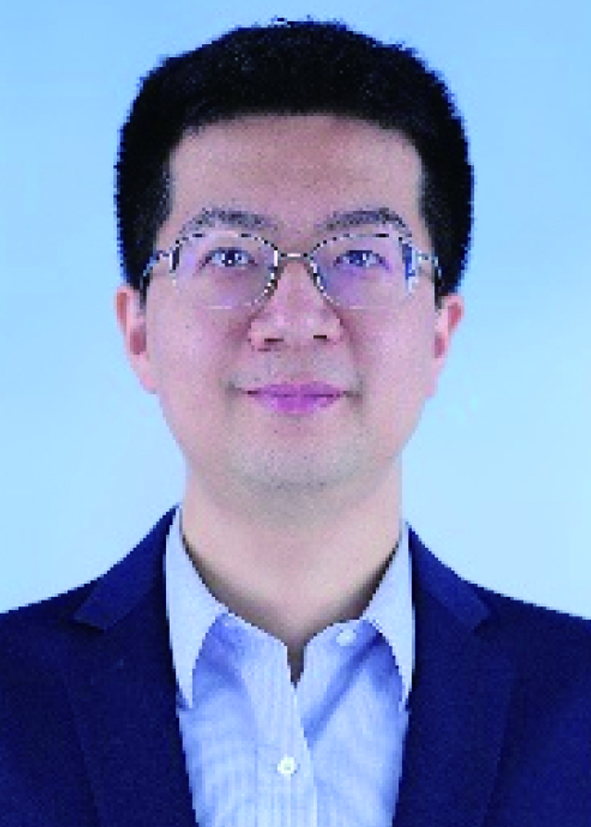
| Citation: |
Zheng Wang, Yan Lu. Preface to Special Topic on Integrated Circuits, Technologies and Applications 2024[J]. Journal of Semiconductors, 2025, 46(6): 060101. doi: 10.1088/1674-4926/25050802
****
Z Wang and Y Lu, Preface to Special Topic on Integrated Circuits, Technologies and Applications 2024[J]. J. Semicond., 2025, 46(6), 060101 doi: 10.1088/1674-4926/25050802
|
Preface to Special Topic on Integrated Circuits, Technologies and Applications 2024
DOI: 10.1088/1674-4926/25050802
CSTR: 32376.14.1674-4926.25050802
More Information-
References
[1] Wang J Y, Li H Y, Wang W X, et al. A battery-free wireless temperature sensing chipset implemented by 55 and 65 nm CMOS process. J Semicond, 2025, 46(6), 062202 doi: 10.1088/1674-4926/25010028[2] Jiang X Y, Deng W, Gong J L, et al. A K/Ka-band series Doherty CMOS power amplifier with distributed multi-step impedance inverting network. J Semicond, 2025, 46(6), 062201 doi: 10.1088/1674-4926/25010002[3] Wang J, Zhang F X, He Z Y, et al. A 2.69 ppm/°C bandgap reference with 42 ppm/V line sensitivity for battery management system. J Semicond, 2025, 46(6), 062203 doi: 10.1088/1674-4926/24120045[4] Huanan Guo, Yufeng Yao, Jiazhen Ni, et al. A 112 Gbps DSP-based PAM4 SerDes receiver with a wide band equalization tuning AFE in 7 nm FinFET. J Semicond, 2025, 46(6), 062204 doi: 10.1088/1674-4926/25030001 -
Proportional views





 Zheng Wang received the B.S. and M.S. degrees from Tsinghua University, Beijing, China, in 2007 and 2010, respectively, and the Ph.D. degree in electrical engineering from the University of California at Irvine, Irvine, CA, USA, in 2014. From 2014 to 2017, he was with Qualcomm Inc., San Diego, CA, USA, working on RFIC design for cellular application. In 2017, he joined the University of Electronic Science and Technology of China (UESTC), Chengdu, China, as a Professor. His research interests include the design of novel radio frequency (RF), millimeter-wave (mmW), and terahertz (THz) silicon-based integrated circuits for the next-generation 10-Gb wireless communications as well as imaging systems.
Zheng Wang received the B.S. and M.S. degrees from Tsinghua University, Beijing, China, in 2007 and 2010, respectively, and the Ph.D. degree in electrical engineering from the University of California at Irvine, Irvine, CA, USA, in 2014. From 2014 to 2017, he was with Qualcomm Inc., San Diego, CA, USA, working on RFIC design for cellular application. In 2017, he joined the University of Electronic Science and Technology of China (UESTC), Chengdu, China, as a Professor. His research interests include the design of novel radio frequency (RF), millimeter-wave (mmW), and terahertz (THz) silicon-based integrated circuits for the next-generation 10-Gb wireless communications as well as imaging systems. Yan Lu received the Ph.D. degree in electronic and computer engineering from The Hong Kong University of Science and Technology (HKUST), Hong Kong, China, in 2013. From 2014 to 2024, he was with the State Key Laboratory of Analog and Mixed-Signal VLSI, University of Macau, Macau, China. In 2024, He joined the Department of Electronic Engineering, Tsinghua University, Beijing, China, as a Full Professor with the endowed Xing-Hua Chair Professorship. His research interests include high-density power converters, integrated voltage regulators, wireless power transfer and energy-harvesting circuits and systems.
Yan Lu received the Ph.D. degree in electronic and computer engineering from The Hong Kong University of Science and Technology (HKUST), Hong Kong, China, in 2013. From 2014 to 2024, he was with the State Key Laboratory of Analog and Mixed-Signal VLSI, University of Macau, Macau, China. In 2024, He joined the Department of Electronic Engineering, Tsinghua University, Beijing, China, as a Full Professor with the endowed Xing-Hua Chair Professorship. His research interests include high-density power converters, integrated voltage regulators, wireless power transfer and energy-harvesting circuits and systems.













 DownLoad:
DownLoad: